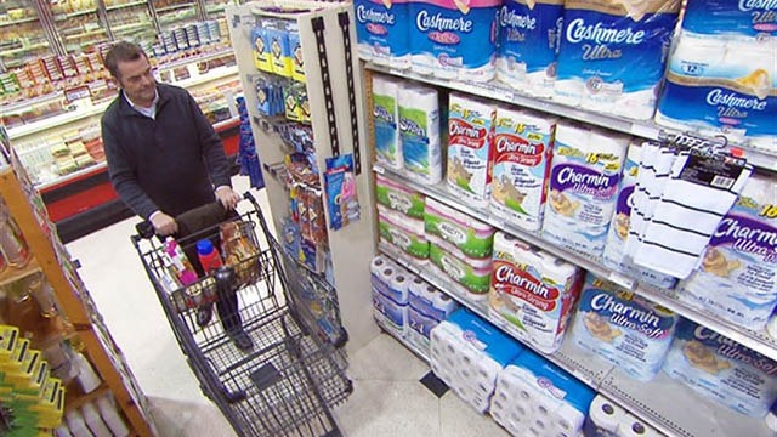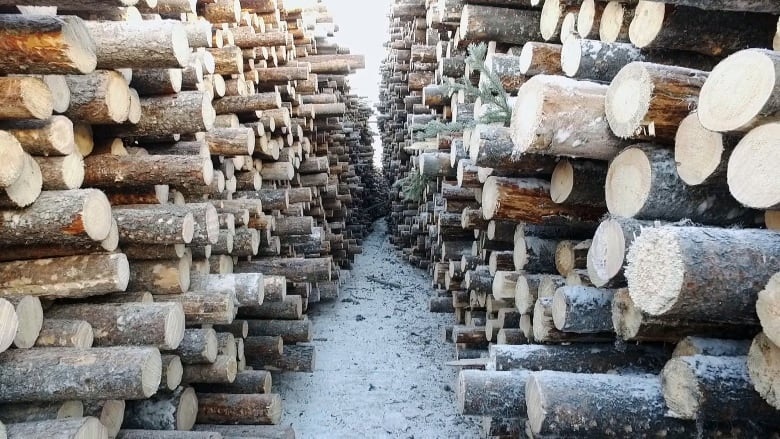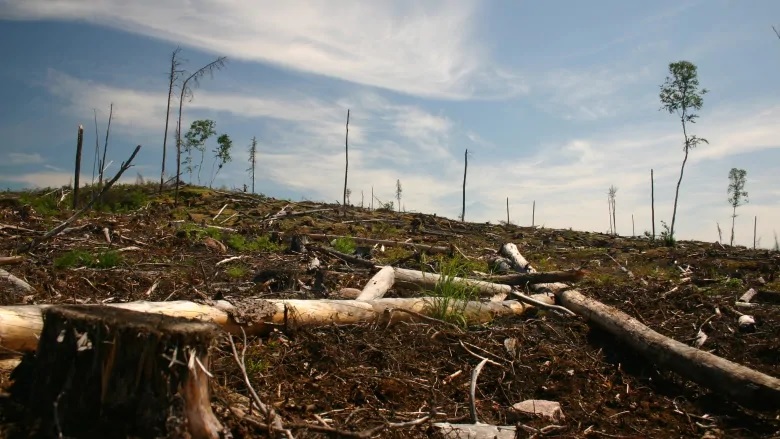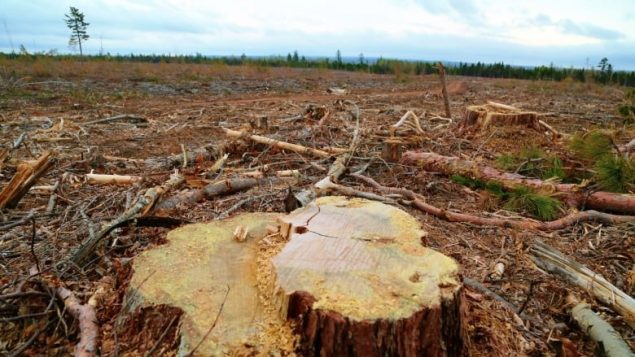It seems “cleanliness” comes at a substantial hidden cost.
Concerns are being raised once again in the latest report on consumption of toilet paper and other tissue and the harm done to forests.

It is little realised that the marketing of ultra soft toilet paper and tissues comes at a serious cost to Canada’s forests and the environment (CBC Marketplace)
The relatively inexpensive product we all use is not without a serious cost to forests and ecosystems.
According to environmental groups, adding to the concern is the marketing campaign promoting the use of ever softer tissues which come from virgin wood.
A Greenpeace story notes that in 2005, the multi-national Kimberly-Clark reported it used some 3,113,000 metric tonnes of virgin fibre in its paper products.

Thousands of trees a day are cut to supply the need for paper, a good portion of that for “soft” tissues. (Chris Corday-CBC)
The World Wildlife Fund reports that every day the equivalent of about 270,000 trees is flushed or dumped in landfills around the world. Much of the fibre used comes from Canada’s boreal forests, and some from so called “old growth” ancient forests, and by the nature of its use, virtually none of the tissue products are recycled.
A new report from environmental groups, Natural Resources Defense Council (NRDC) and Stand.earth, slammed the three big multinationals, Proctor & Gamble, Kimberly-Clark, and Georgia Pacific which produce product names like Charmin, Cottonelle, Brawny, Bounty, Kleenex, Angel Soft, Quilted Northern and Viva. The non-profit environmental groups note, “None of their flagship at-home brands contain recycled materials or alternative fibres, and each company misses other key commitments necessary to ensure their products do not come at the expense of the boreal forest”.
Eco-Watch says between 1996 and 2015 more than 28 million acres of boreal forest were logged, an area much bigger than either Scotland, Ireland, or Iceland.
It says the U.S is the biggest consumer of toilet paper in the world at a rate of about 3 rolls per person per week, followed by Germany and the U.K.. Canada doesn’t make the top ten in toilet paper consumption.

When a virgin forest is cut, it creates radical changes in ecosystems and wildlife. (Freegrassy.net)
The report says not only does the use of virgin forest cause great harm ecosystems and wildlife, but also to indigenous people’s way of life, and while emitting vast amounts of greenhouse gas in the harvesting and production of the tissues.
While all the companies say they are concerned about the environment they also say it is consumers who are driving the demand for soft tissues.
The environmental groups say better alternatives for manufacturing are available including recycled wood pulp, wheat straw, hemp, and bamboo as just a few examples..
They also note that replacing mixed virgin forest with tree plantations as wood sources also completely changes ecosystems.
Additional information-sources
- NRDC Stand Earth report: Feb 26/19: The issue with tissue-flushing forests down the toilet
- EcoWatch: Skene/Vinyard: Feb 21/19: Toilet paper: flushing away forests
- PostMedia: A Humphreys: Feb 25/19: U.S toilet paper wiping out Canadian forests
- Worldwatch Institute: N Robbins: Feb 26/19: Flushing forests
- NRDC: S Casey-Leftkowitz: Feb 27/17: Industry papers over threat to forests
- Greenpeace: L Allen: Feb 26/09: Destroying forest for toilet paper
- Guardian (UK): S Goldenberg: Feb 26/09: soft toilet paper “worse than driving Hummers”
- Fast Company: A Kamanetz: Feb 26/09: Green toilet paper buying guide
- CBC Marketplace documentary: forestry, toilet paper, environmental certification
- Daily Hive: Feb 25/19: Excessive U.S. toilet paper use wiping out forests







For reasons beyond our control, and for an undetermined period of time, our comment section is now closed. However, our social networks remain open to your contributions.